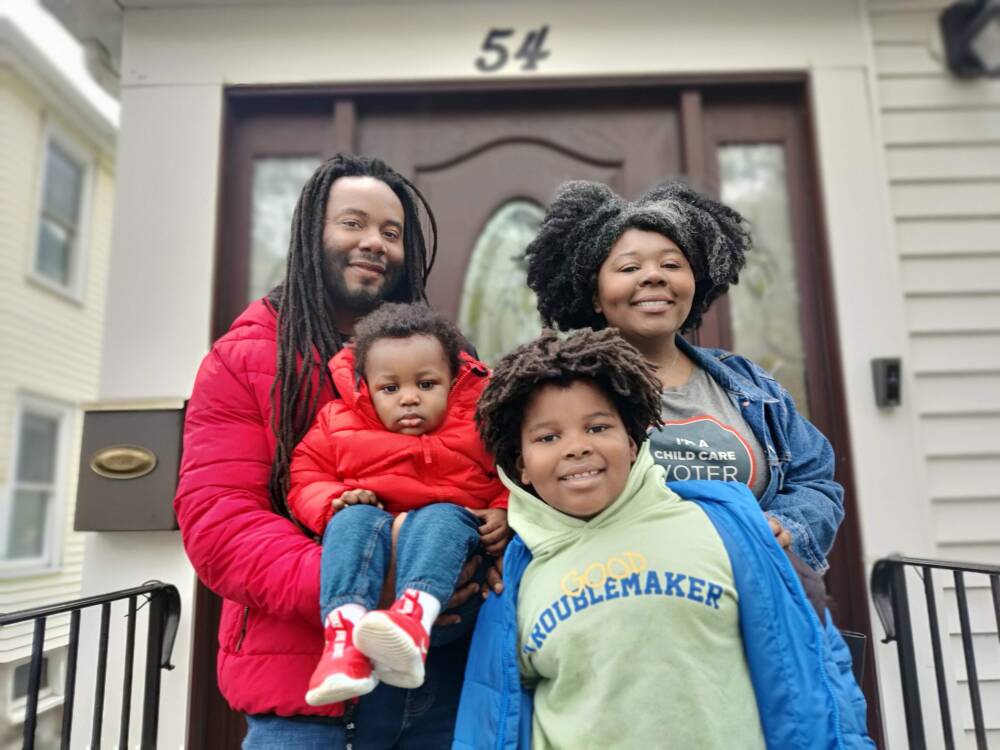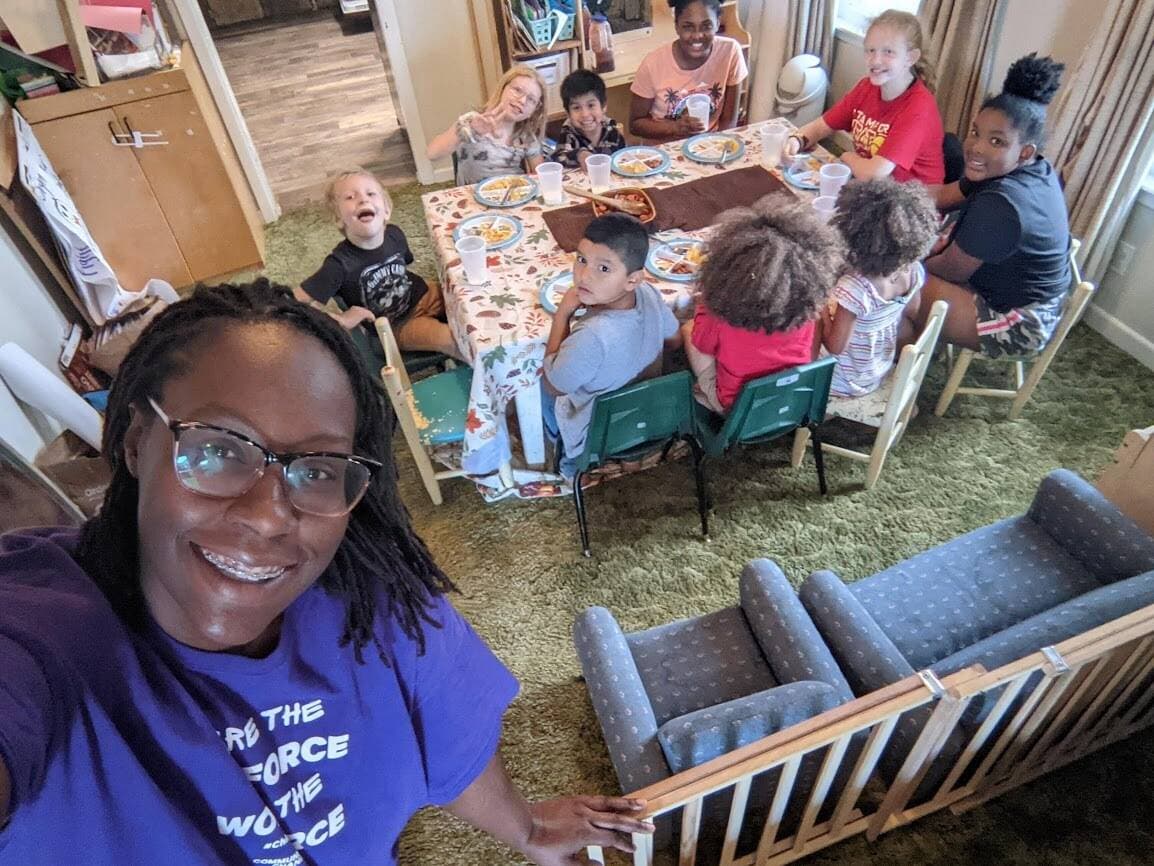Advertisement
A Day Without Child Care: Daycares plan to close for protests Monday
Resume
More than 700 child care providers are shutting down for the day in at least 20 states Monday to rally for better pay for educators and more affordable care for families.
One of the organizers of an event at the Texas State Capitol is BriTanya Brown, the owner of the child care business Our Loving Village in Stamford, Texas.
“It’s so unaffordable in our area to pay for child care,” she says. “And because of the pay that I get from many of the families who need subsidized child care, I'm having to close my doors to prevent a permanent day without child care from happening because I'm often having to choose between keeping our lights on and food on our table.”
Brown is also part of Community Change Action’s network of child care changemakers and a single mother of 4-year-old twins.
She drove more than four hours with her son and daughter to rally in Austin to elevate the impacts that the child care crisis has on rural communities.

She points to 2021 data that shows more than 350 zip codes in Texas were classified as childcare deserts with many in rural communities like hers.
The parents she serves understand why she’s closing down, Brown says, because they talk about the issues together.
“They actually advocate alongside me,” she says. “I am here on behalf of my families to make sure that our Texas lawmakers don't forget about our rural communities. And I'm making sure that the burden of the true cost of care, which is often financial, emotional and socioeconomic, is not just placed on the shoulders of women, especially Black and Brown women like me.”
Brown says she’s inspired by recent wins in a neighboring state.
“I'm looking to New Mexico because providers and families came together and won permanent funding for their providers to earn living wages so that every child in New Mexico can have access to childcare,” she says. “It is a guaranteed right. I know that if we can find a way in New Mexico, we can definitely find a Texas solution.”
Some child care providers in other states are choosing to remain open during today's actions, but they're still calling for change says Latoya Gayle, senior director of advocacy for Neighborhood Villages, a Boston-based nonprofit working for high quality early education and care.
Advertisement
In Massachusetts, she’s asking parents and guardians to help flood state lawmakers with phone calls and emails about how challenges with child care have affected their careers, their finances, and their ability to start or expand their families.
Like so many mothers, Gayle says she knows the true cost of not having child care.
“So I have four children … I have a couple of teenagers and I have a couple of younger ones and my youngest is only 1,” Gayle says. “With my oldest two children, I did not work because child care was so expensive … And I always think about what would I have done? What would my career look like? I always imagine myself as a CEO of a Fortune 500.”
Gayle says not being able to work when she had her first children in her 20’s has impacted her career trajectory.
“Your income, earnings and potential over your lifetime are so much less,” she says.
Now in her 40s with two teenagers and two young kids, she’s seeing the child care crisis all over again. And she says this time around, it’s worse.
“Here in Massachusetts, you can pay between $400 and $600 a week for one child,” Gayle says. “And the part that I've learned along the way is our early educators are also not getting paid a lot, even though it's costing families so much money.”
The solution, she says, is legislation.
“So we really ultimately think that child care should be funded as a public good, the way we think about our K-12 system,” Gayle says. “But here in Massachusetts, we have two bills on the table this year that would be historic if we're able to pass them.”
The bills, if passed, would codify grants for providers to have a more predictable income to pay staff and broaden how many families are eligible for financial assistance for child care.
“The Senate bill, you could earn like $272,000 for a family of four and still qualify for financial assistance for child care,” Gayle says. “And our House bill, you could earn, I want to say, $185,000 for a family of four and still qualify for financial assistance.”
The legislation also would tackle the issue of access to care by increasing the reimbursement rate for vouchers that the state provides to child care educators when a family’s income is too low to pay for care.
Gayle says providers in her state are getting less than a 30% reimbursement rate.
“So we're really asking providers to subsidize this system and that's unfair, period,” she says. “But then when you look at who are providers, they are mostly women of color. And so we're asking women of color to subsidize child care, and that's limiting their income potential, and that's why people are choosing to leave.”
Gayle says beyond Monday’s actions, she is encouraging everyone across the country to consider these issues when they decide who represents them as a “child care voter.”
“It means that you vote for the people who heard your story and are willing to put forth legislation that supports your needs. And that means once they're in office, that you hold them accountable to those needs,” she says. “Everyone is a child care voter, because if we had a day without child care, everyone would be impacted … Parents are everywhere. If there's no one to care for our children, then we can't get anything else done.”
Ashley Locke produced and edited this interview for broadcast with Gabe Bullard. Locke also adapted it for the web.
This segment aired on May 8, 2023.

